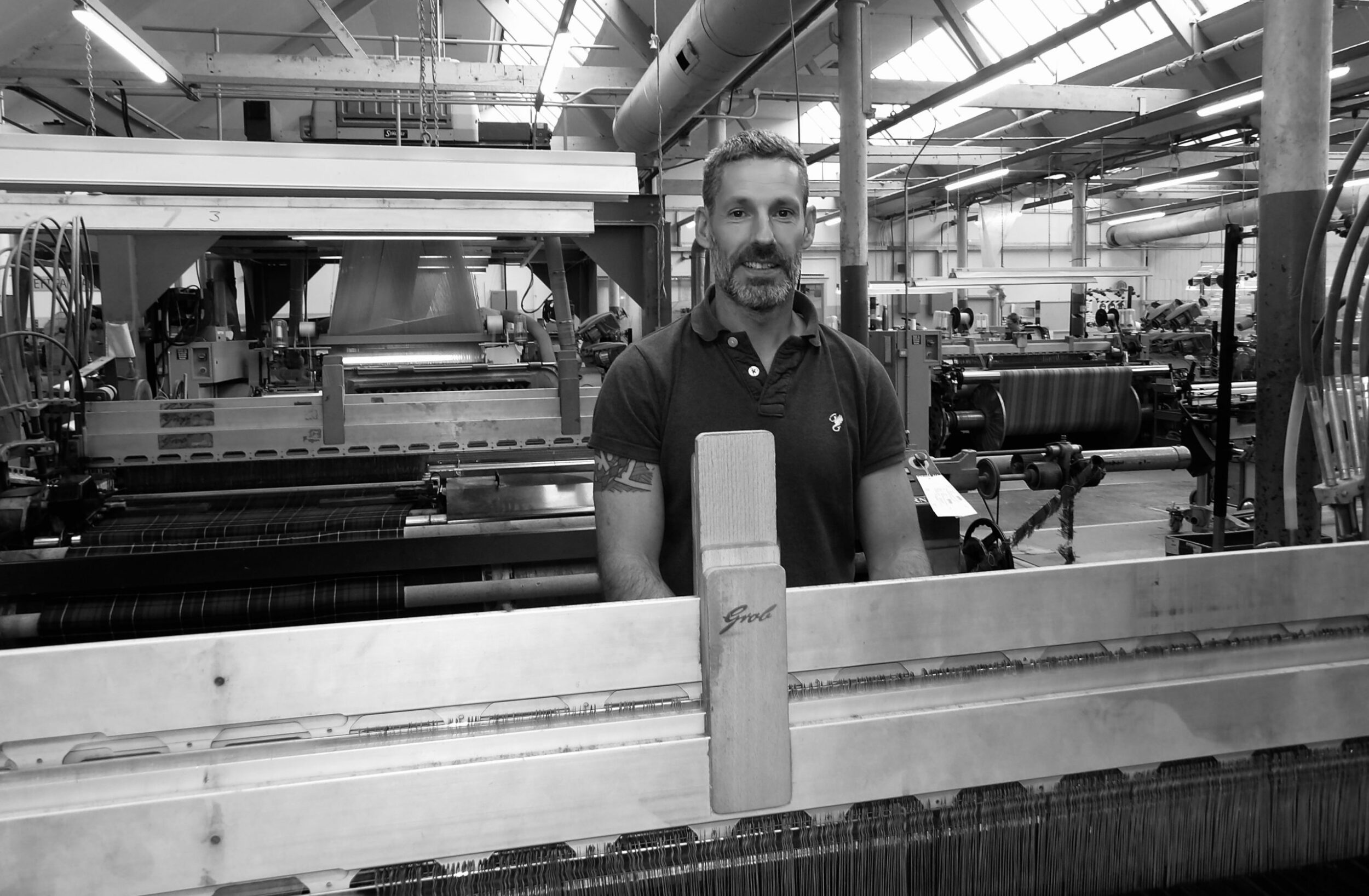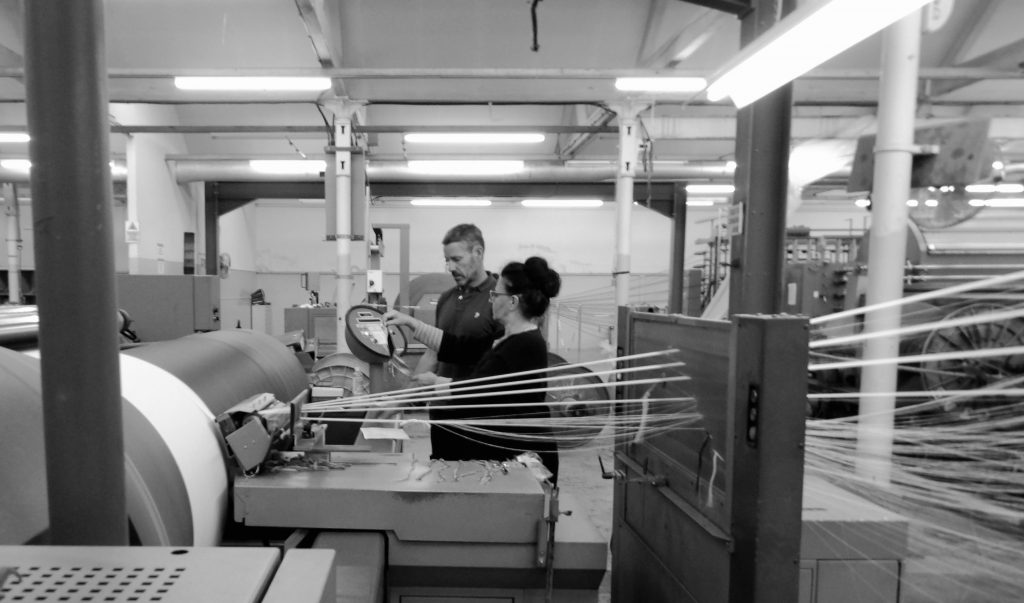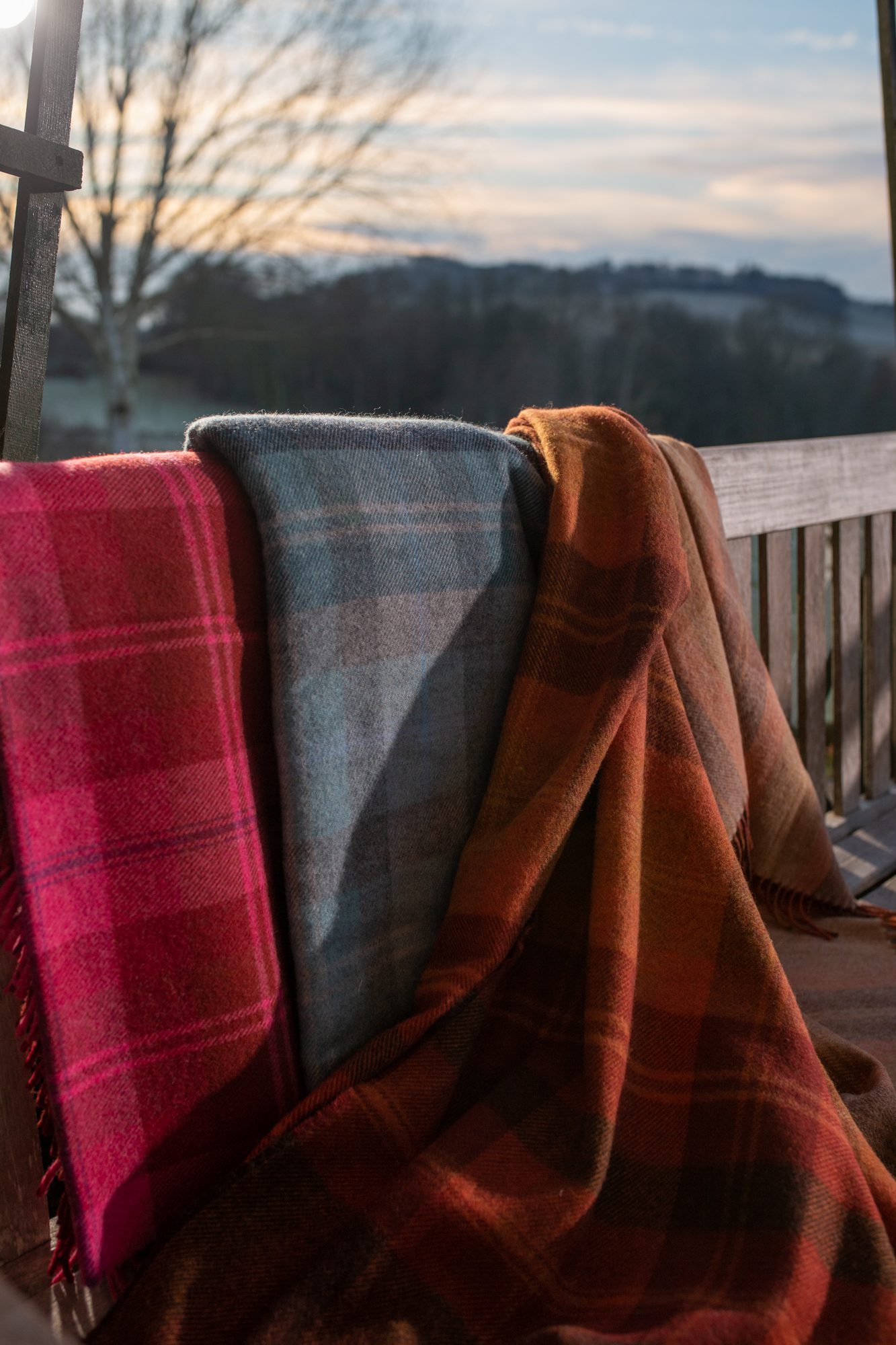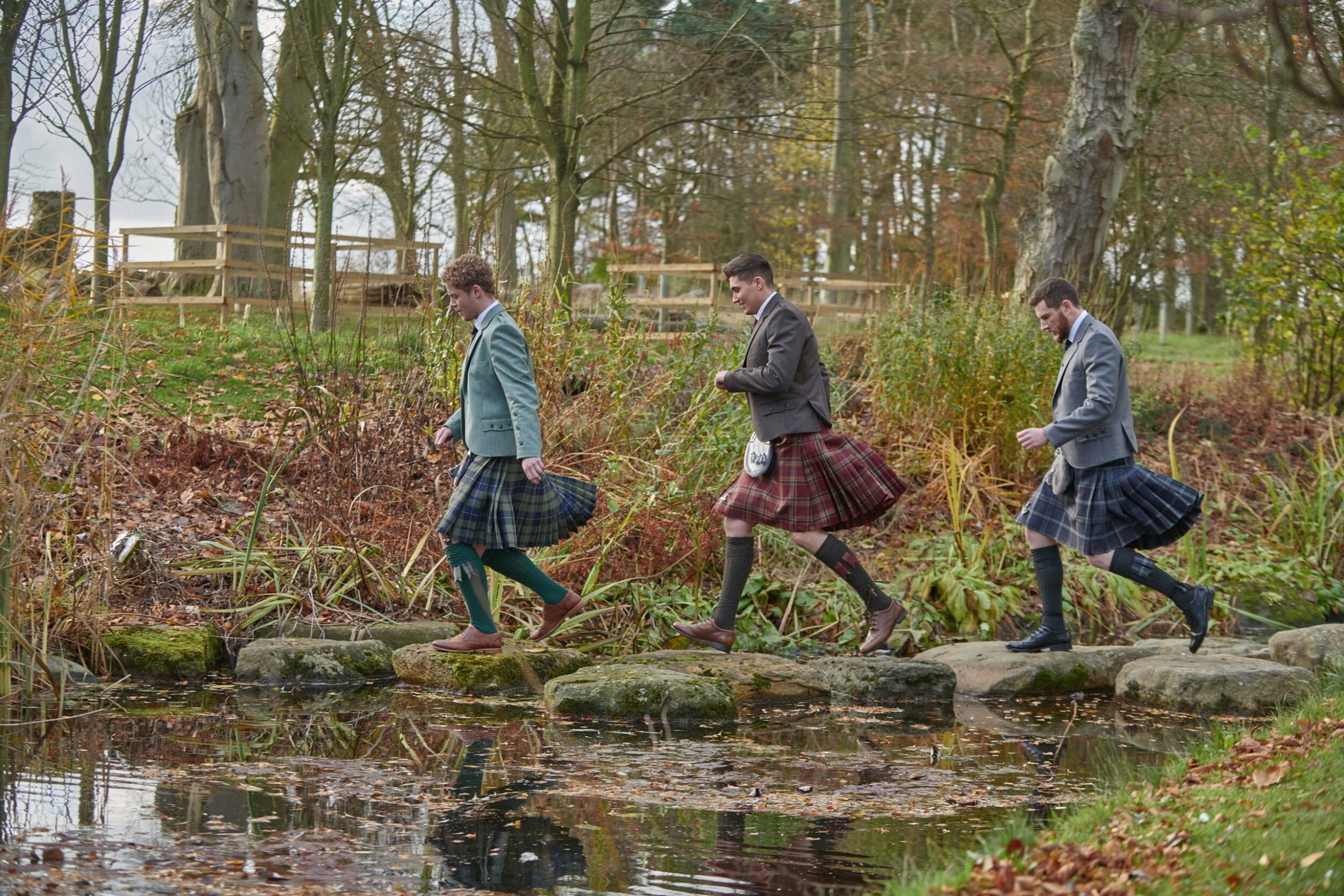EUAN DALGLIESH
assistant manager at
MACNAUGHTON HOLDINGS
Technically trained to a high level, Euan has worked his way up in the Scottish textile industry and now is helping to ensure employees at Macnaughton Holdings’ weaving factory in Keith have a broad range of skills fit for the future.
Euan Dalgliesh is the assistant manager at the weaving mill of Macnaughton Holdings, a family-owned company founded 1783 and based in the small town of Keith in the Scottish Highlands. He was born into the textile industry and gained a wealth of experience at firms including Gardiners of Selkirk (where he served his apprenticeship), Bridgehaugh Dyers, DC Dalgliesh and Locharron of Scotland before joining Macnaughton in 2014.
Today Macnaughtons operates from three sites: the head office in Perth, kilt manufacturing in Paisley and weaving in Keith, where Euan works. The company specialises in Highlandwear with an in-house brand called the House of Edgar, and furnishing fabrics, with an in-house label called Isle Mill. In January this year, the firm relaunched a Paisley heritage brand called Whitehill and Wilsons, for the manufacture and sale of accessories.

Euan is a trained tuner, a technical role which involves setting up the weaving looms and adjusting tolerances to meet exacting requirements, but always wanted to move into management.
“As a tuner, it lets you see an awful lot of a company and you can learn as much as possible, which sets you up well for management,” he says.
One of the things that attracted Euan to Macnaughtons is the company’s forward-thinking approach, explains Euan. Kilting tartans used to be made on old shuttle looms but they could be noisy, dirty and sometimes dangerous.
“Macnaughtons had the foresight to convert modern looms to give the same selvedge that the shuttle looms do naturally – it took a lot of time and money to do but it has paid off. As a company, they’re are not stuck in the old way of doing things – they’re looking to progress and develop, which appealed to me.”
He was also attracted to the firm as he liked the working environment and the company culture, which is committed to passing on skills and developing new markets.
“I came up here to see the facilities and I really liked what I saw,” he explains.
“Sometimes factories can be dark and dingy but here it is a bright open environment. I spent time with the production director Struan Paterson and the manager Kevin Stewart and they knew the industry inside out. It was great to speak to people who knew what they were talking about.”
“Kevin has been here since he left school and he knows every part of the process – feeding off his knowledge has been a massive benefit. In this industry, you are always learning something new.”
“My role now is making sure everything is run properly and a big part of that is training. It is great passing on that knowledge and experience so you can see others flourish.”

Euan works with a team of around 20 people in production in the Keith factory, working in various roles from the yarn store to warping, drawing in and darning.
“It’s a lot harder now than it was in the past as in the you used to get people come in with experience,” he says. “Now nine times out of ten they don’t have experience. All of our training is done in house and is very specific.”
“When I started here, I made sure we had written notes on what the training procedures are – bullet points they must meet to make sure all the procedures are met. We let new workers shadow experienced workers and one of my jobs is to make sure that they are getting the right support and training they need. We hold quarterly meetings to see how they are progressing. Some skills need a year to learn and others take longer. It’s up to me to see how long they need and I then give the final say that they’re fully competent. In this job, experience is a great asset.”
One of the biggest challenges he faces is maintaining a skilled workforce and trying to attract new people into the business.
“The industry hasn’t got a good reputation – people still look at it as dark old factories and dangerous machines,” he says. “Nowadays the machinery are a lot more modern and while you still need the old skills, it is a much better working environment.”
Another big change that Euan has noticed working in the industry is that for companies to be successful, they need multi-skilled staff. In days gone by, textile workers were typically proficient in one specific role but now companies tend to have a smaller workforce but workers can do many different things.
“I like working in this industry because there is always something different: you can be working with different qualities or working with different designs and challenges. You have to come in here and know that you can’t know everything. I have been in this industry for 30-odd years and I’m still learning and picking up new things. If you come in with an open mind, it’s great.”
Macnaughtons has regular lines, which are the mainstay of the company, but also works with designers with new materials and new designs.
“It is up to us to say yes we can do that and find a way to do it efficiently, or no we can’t do it – but here is what we can do instead,” he says. “It is great to have a speciality but also good to progress and diversify into new markets.”

One of the biggest changes for the company most recently is the move into accessories such as scarves and shawls. Euan says:
“We did a lot of trials and samples and now we’re seeing it pay off with bigger beams and bigger orders coming through. We’re always seeing different tartans and new variations, and it is good because we see things from design, through to sampling and production.”
As the company is split across different sites, sometimes it can be difficult for the team to visualise the end product or know where they end up. Goods are finished in the Scottish Borders and can change dramatically at the finishing stage. To counter this, Macnaughtons has recently introduced a newsletter to showcase some of the finished products and let everyone who has been involved in the production know where the materials are sold.
“The workforce seems to really appreciate that,” says Euan. “It’s something we are starting to see a lot more on social media too.”
He takes great pride in the products he is part of producing, as well as passing that sense of pride onto the workforce and people in training.
“We are always looking for things that can be improved on. I’m a great believer in learning being a two-way street. We impart our knowledge to the workforce but we also listen to what they have to say – it’s great to get other ideas. They might not work but if you never hear them you’ll never know.”

One of the other things he likes is recognising his role as part of a full process.
“It’s about trying to do your job as best as you can so that when the next person gets it they have no issues. It’s satisfying seeing something come in as a thread and going out as a piece of material.”
“The other thing is we’re Scottish and we’re weaving tartan – it’s our national fabric and national dress,” says Euan. “If you can’t take pride in that then there’s something wrong.”
Macnaughton’s managing director James Dracup describes Euan as a role model for others:
“Other than being technically trained as a tuner to a high level, Euan is an exemplary employee and member of our team. A hard worker, he works closely with Kevin Stewart our manager in ensuring that we train and multi-skill all our employees at our Keith factory. He is heavily involved in succession planning, people development and training and also the day to day running of our factory.”
“We are very proud to have him as a valued member of our team and he is a wonderful example of a technician who is rising through the ranks of our company,” he concludes.
